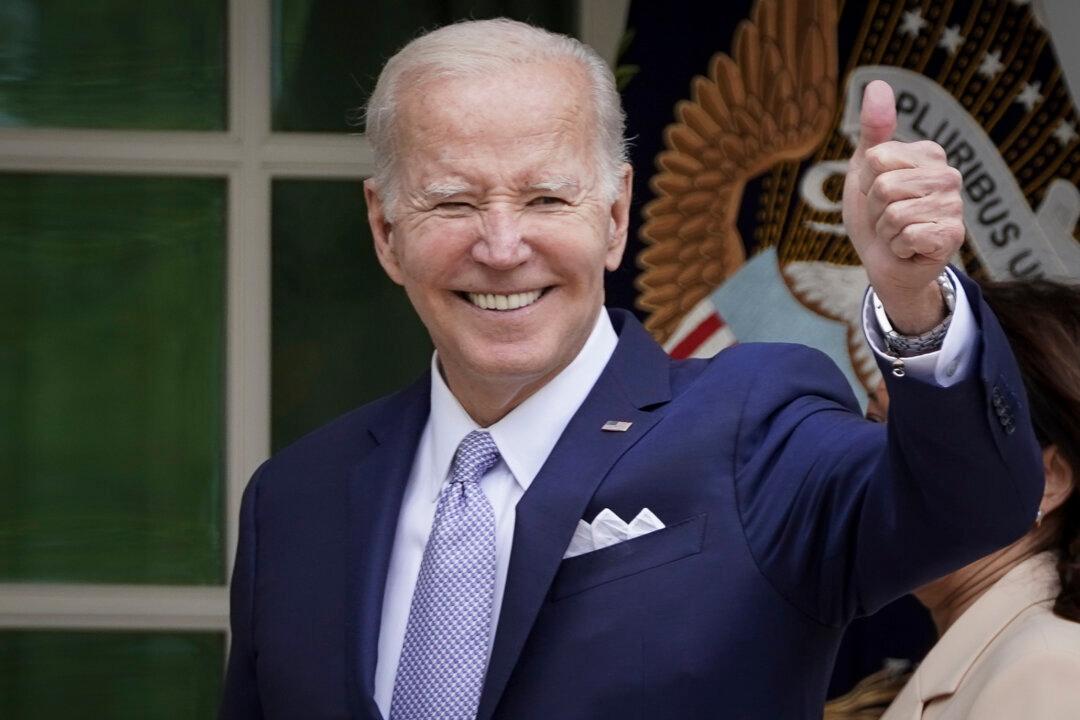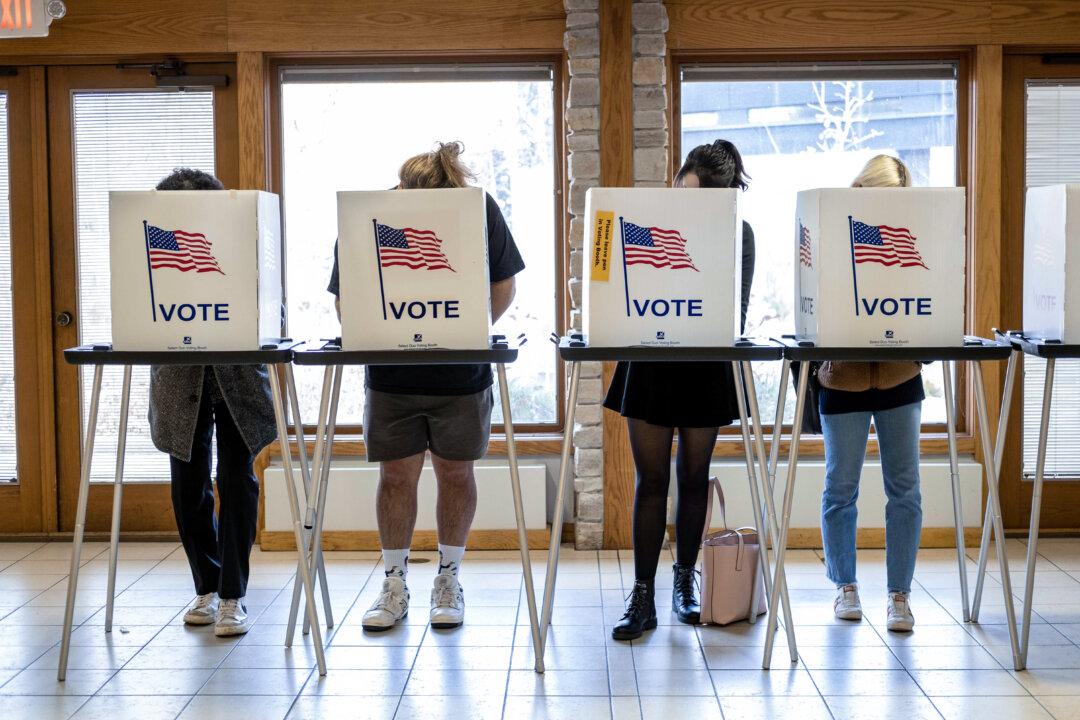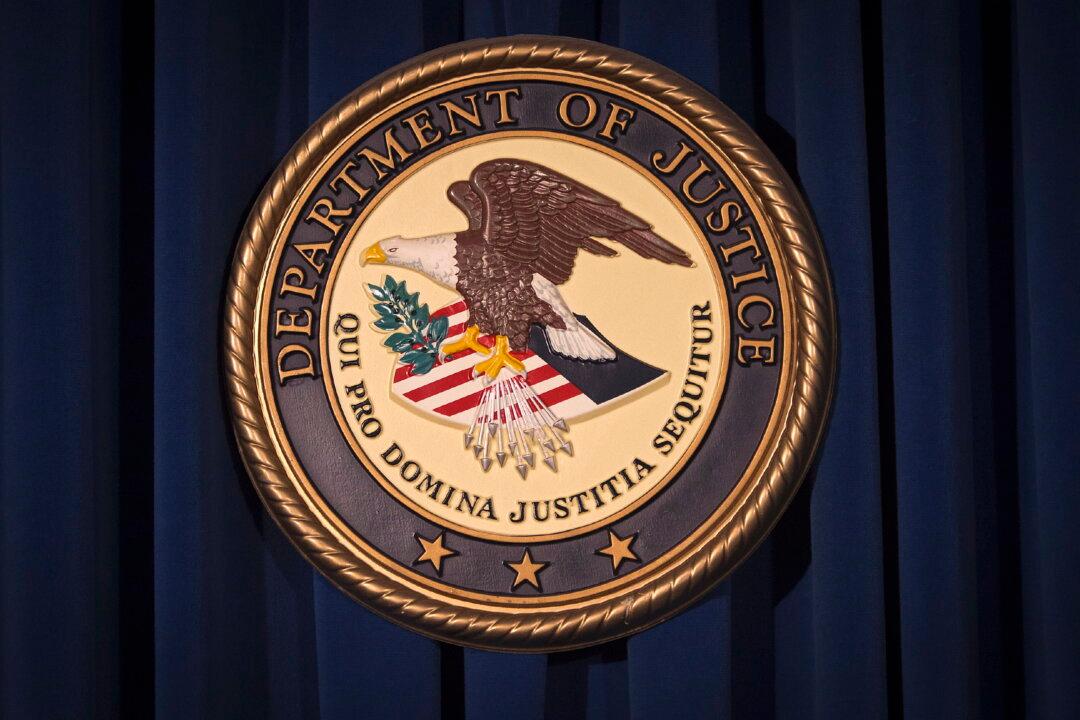Daniel Henninger, writing in the Wall Street Journal on April 26, properly describes Joe Biden as “the perfect Democratic president.”
According to Henninger, Biden’s “non-compos” condition should give the “left wing of his party free rein” during his second presidential term, which is exactly what his party wants. A cognitively impaired, not particularly principled figurehead fits the needs of his handlers; and Biden obviously has no interest in doing anything to upset them. He will dutifully get behind his party’s latest woke project and ritualistically attack its Republican opponents as white nationalists, sexists, and homophobes.
Equally significant, Biden is the perfect front figure for an administrative state in which the chief executive provides little more than an ornament: “A beside-the-point president is the best thing that has ever happened to the progressive centralization project. That is why Washington’s Democrats would embrace a Kamala Harris succession.”
What I discern in Henninger’s compelling description of a second Biden term is the outline of my thesis in “After Liberalism“ (Princeton, 1999), which is subtitled “Mass Democracy in the Administrative State.” In this work I argue that modern Western regimes are not really about “democracy,” that is, meaningful self-rule, of the kind that existed historically in Swiss cantons or in Thomas Jefferson’s concept of popular government. The modern version of democracy is about public administration, in which citizens are called on periodically to give their rulers a stamp of approval through elections (which are now conducted in much of this country without voters having to identify themselves or even appearing in person at a voting precinct).
“Liberal democracies” have also ceased to be “liberal” in any real sense since that term now refers to the actions and policies of governments run by public administrators and their media backers. It’s now considered “liberal” for the state to approve of the sexual mutilation of children, even without parental permission, or to close down opposition speech, if our administrators decide that’s the “liberal” course of action.
There’s also a secular state religion that reigns in most Western countries, and that too dispenses “liberal” teachings. When I wrote “After Liberalism,” that state religion featured a more modest form of diversity than the one that’s now in place. In its more recent form, as taught by the media and academic priesthood, postliberal liberalism has turned woke and now urges discrimination against white people, particularly against heterosexual white males. It also discriminates against devout Christians of all races, in the name of transgendered identity, which represents the newest distillation of liberal orthodoxy.
Political labels are therefore in freefall, and often mean no more than what those who control our lives and consciousness want those terms to signify. Values and rights are also part of the common moral vocabulary, which is shaped through an exercise of will on the part of our “liberal democratic” leaders. Henninger may be actually understating this situation when he observes about policy wonks and social engineers running the Deep State that “their control of the bureaucratic levers today is unprecedented.” Even more ominously, we may now be at a loss trying to figure out how we can reverse this situation. With “passive presidents” like Biden technically at the helm and fronting for woke administrative elites, there’s no real chance of this ever happening. The bureaucratic control that Henninger bewails, unless upended, will likely reach further unprecedented levels.
Henninger disappoints, however, in his inability to escape the limitations of a neoconservative perspective in his criticism of a Biden or Harris presidency. The major problem with this crisis in government, or so one might infer from Henninger’s commentary, is the fact of failing American world leadership. While President Harry Truman had a Dean Acheson and Richard Nixon a Henry Kissinger to advise them on foreign policy, Biden has the far less effective Tony Blinken at his disposal. Contrary to what Biden is doing, Henninger states: “The U.S. needs to increase spending on national security beyond 3% of gross domestic product. No matter what happens in the world, these Democrats won’t do that.”
Without in any way minimizing the importance of a more credible foreign policy than the one the Biden administration is pursuing, particularly after the disaster in Afghanistan, we might first note the domestic repercussions of the current presidency. A bleeding southern border that allows the country to be overrun by drug traffickers, terrorists, and waves of penniless illegal immigrants, crime-ridden cities in which police have been disempowered, reckless green economic measures, the persecution of parents and churches that resist LGBT and antiwhite indoctrination, and the total politicization of the surveillance state are for me more worrisome than America’s diminished presence in international affairs.
Would it be better if we increased the percentage of GDP spent on military expansion while allowing these other problems to fester and destroy our social fabric and constitutional order? Henninger’s brief would be even more compelling if he underlined the grave domestic results of Biden’s “perfect presidency.”





